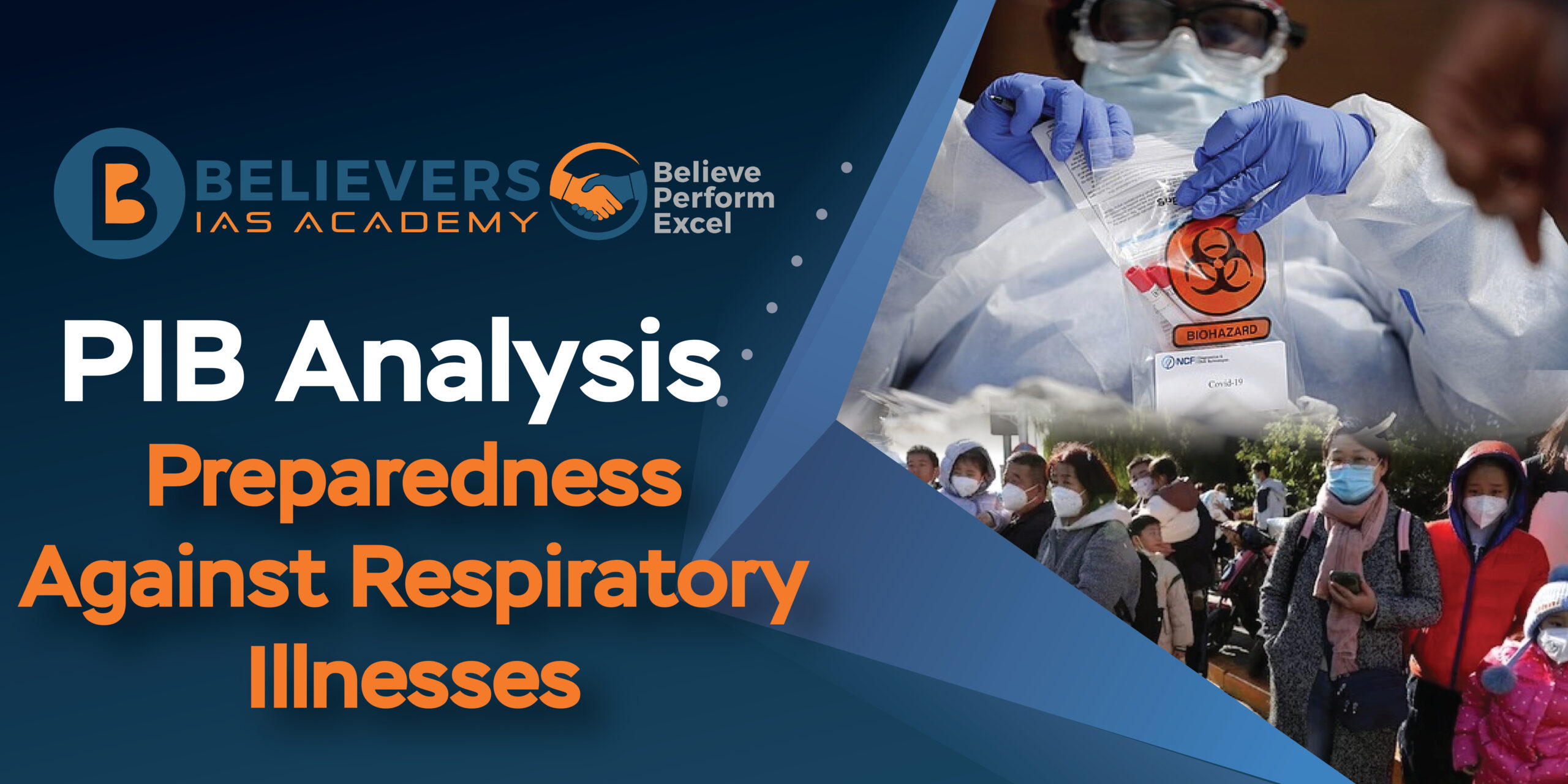Preparedness Against Respiratory Illnesses
Context:
Recently, the Union Health Ministry has taken a proactive stance to evaluate preparedness measures in response to a surge in respiratory illnesses reported in northern China, as communicated by the World Health Organization (WHO).
Relevance:
GS-02 (Health)
Main Highlights:
- The rise in respiratory diseases in China is primarily attributed to common causes such as influenza, Mycoplasma pneumonia, and COVID-19. According to the WHO, factors contributing to this surge include the lifting of COVID-19 restrictions, the onset of winter, and the cyclical pattern of illnesses like Mycoplasma pneumonia.
- While WHO is seeking more information from Chinese authorities, the current assessment suggests that there is no immediate cause for alarm.
- In light of these developments, India’s Union Health Ministry has directed a thorough review of preparedness measures against respiratory illnesses. States have been instructed to implement the “Operational Guidelines for Revised Surveillance Strategy,” focusing on integrated monitoring of influenza-like and severe acute respiratory illnesses.
- Additionally, states are urged to closely monitor trends in such illnesses, especially among children and teenagers, and submit the data on the Integrated Disease Surveillance Project portal.
- States have received further guidance to send nasal and throat swab samples from patients with severe respiratory illnesses, particularly children and adolescents, to Virus Research and Diagnostic Labs for testing.
Integrated Disease Surveillance Programme (IDSP):
- IDSP is a crucial public health initiative operating under the National Health Mission.
- Its goal is to swiftly detect disease outbreaks through real-time monitoring.
- IDSP functions across all states and union territories in India, implementing early responses to outbreaks through trained Rapid Response Teams (RRTs).
- This decentralized, laboratory-supported, IT-enabled disease surveillance system enables a rapid reaction to emerging epidemics.




